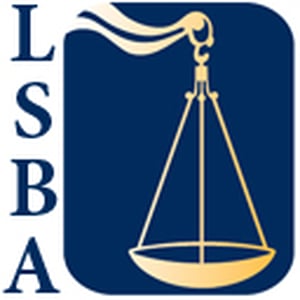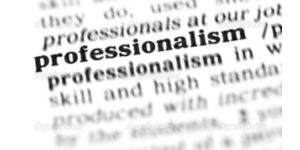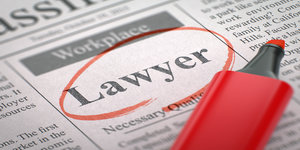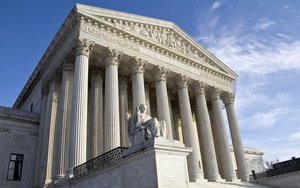
If a Louisiana lawyer were were to read just one post on this blog all year, this should be it. Here are the top seven1 developments in Louisiana legal ethics in 2018.
Louisiana and Other States Decline to Adopt ABA Anti-Discrimination Rule

In 2018, the Idaho Supreme Court Supreme Court joined six other states that have expressly declined to adopt the ABA’s 2016 model anti-discrimination rule. See ABA Center for Prof’l Responsibility, Policy Implementation Committee, Jurisdictional Adoption of Rule 8.4(g) of the ABA Model Rules of Professional Conduct (as of Sep. 19, 2018). To date, only Vermont has adopted the model rule, although twenty states have preexisting rules that are analogous to Model Rule 8.4(g). Id. See generally Scott Flaherty, Several States Weigh ABA’s Anti-Discrimination Rule, Law.com (May 22, 2018).
Background: The 2016 Adoption of ABA Model Rule 8.4(g)
In 2016, the ABA amended Model Rule 8.4 to include a broad anti-discrimination and anti-harassment provision, and three revised comments. The amendment, which was sponsored by several ABA groups,2 added this new paragraph (g) to the black-letter of Rule 8.4:
It is professional misconduct for a lawyer to: . . . (g) engage in conduct that the lawyer knows or reasonably should know is harassment or discrimination on the basis of race, sex, religion, national origin, ethnicity, disability, age, sexual orientation, gender identity, marital status or socioeconomic status in conduct related to the practice of law. This paragraph does not limit the ability of a lawyer to accept, decline, or withdraw from a representation in accordance with Rule 1.16. This paragraph does not preclude legitimate advice or advocacy consistent with these rules.
See ABA Revised Resolution 109 (adopted Aug. 8, 2016).
Louisiana Considers Adopting an Anti-Discrimination Rule
On November 27, 2017, the LSBA Rules of Professional Conduct Committee reported that it would make “no recommendation” regarding the adoption of a rule prohibiting discrimination and harassment in conduct related to the practice of law. See Richard C. Stanley, Letter to LSBA Outreach and Diversity Director (Nov. 27, 2017). This “no recommendation” vote came after more than a year of analysis and discussion in the wake of the ABA’s adoption of Model Rule 8.4(g).
Prior to the committee’s vote, a subcommittee had proposed the addition of a new Louisiana Rule 8.4(h), that would have provided as follows:
It is professional misconduct for a lawyer to: . . . (h) engage in conduct in connection with the practice of law that the lawyer knows or reasonably should know involves discrimination prohibited by law because of race, color, religion, age, gender, sexual orientation, national origin, marital status, or disability. This Rule does not prohibit legitimate advocacy when race, color, religion, age, gender, sexual orientation, national origin, marital status, or disability are issues, nor does it limit the ability of a lawyer to accept, decline or withdraw from a representation in accordance with Rule 1.16.
See LSBA Rules of Professonal Conduct, Rule 8.4 Subcommittee Report Executive Summary at p. 2 (Mar. 24, 2017); see also LSBA Rules of Professional Conduct Committee, Rule 8.4 Subcommittee Report (Mar. 24, 2017) (full report). In July 2017, the LSBA Rules Committee published the subcommittee’s proposal and invited written comments on the adoption of a new anti-discrimination standard of professional conduct.
On October 30, 2017, the committee met in New Orleans to consider the comments received and to discuss adopting the ABA model rule or the subcommittee’s proposal. After a long debate, the committee voted 7-4 to make “no recommendation.” See Richard C. Stanley, Letter to LSBA Outreach and Diversity Director (Nov. 27, 2107). Although the committee’s chairperson noted that “it is difficult to summarize the rationale of the lengthy debate in its entirety, the primary arguments made by those opposing the rule” were as follows:
- Existing rules permit ODC to prosecute much of the conduct that would be covered by the proposed rule, “thus making it unnecessary.”
- The proposed rule contains ambiguous terms that could engender litigation and create uncertainty.
- The proposed rule may be unconstitutional.
Id. at pp. 1-2.
The committee’s decision was a good one. Louisiana clearly should not adopt the ABA’s standard. For all of the reasons discussed above, the ABA model rule is fraught with problems.
Moreover, the proposal of the subcommittee was also problematic. Granted, the subcommittee’s proposal was less problematic than the new ABA model rule. For example, it did not brand any sort of “harassment” as misconduct, and thereby avoided the myriad problems associated with the ABA anti-harassment standard. However, the subcommittee’s proposal still raised serious questions. It branded as “misconduct” purely negligent discrimination. And it inexplicably incorporated some of the ABA’s protected classes (race, religion, age, gender, sexual orientation, national origin, marital status, and disability), but excluded others (ethnicity, gender identity, and socioeconomic status).
What Should Louisiana Do?
In my view, Louisiana either should do nothing at all (like what the committee did) or adopt a simpler anti-discrimination standard that is directly tethered to anti-discrimination laws applicable to Louisiana lawyers. Such anti-discrimination laws would include those enacted by the federal government, the State of Louisiana, and local governments. Doing so would avoid the need for the LSBA to “keep up” with changing notions of what personal characteristics are worthy of class protection. Doing so would also avoid imposing discipline on innocent and merely negligent lawyers. Here is my proposed language:
It is professional misconduct for a lawyer to: . . . (h) engage in conduct in connection with the practice of law that the lawyer knows is unlawful discrimination prohibited by federal, state, or local law. This Rule does not prohibit legitimate advocacy when a protected personal characteristic is relevant to the representation, nor does it limit the ability of a lawyer to accept, decline or withdraw from a representation in accordance with Rule 1.16.
Louisiana Supreme Court Amends Trust Accounting Rules to Address “Unclaimed Funds”

In 2016, the Louisiana Supreme Court amended Rule 1.15 to provide guidance to lawyers as to the what to do with “Unidentified Funds” in a trust account. See Order Amending Louisiana Rule of Professional Conduct 1.15 (signed and effective March 23, 2016) (codified at Louisiana Rule 1.15(h)). The amendment defined “Unidentified Funds” as: “Funds on deposit in an IOLTA account for at least one year that after reasonable due diligence cannot be documented as belonging to a client, a third person, or the lawyer or law firm.” Id. As to such funds, the amendment provided that the lawyer “must remit the funds to the Louisiana Bar Foundation.”2
What About “Unclaimed” Funds?
At the time, however, the court did not address a related (and perhaps more common) problem: What must a lawyer do when the lawyer can source trust monies to a specific client but simply can’t find the client? The best advice at the time was that the lawyer should make reasonable efforts to locate the client and, if those efforts were fruitless, the lawyer should consult the Louisiana Department of the Treasury, Unclaimed Property Division.3
On November 27, 2018, the court resolved the confusion by amending Rule 1.15 to address a lawyer’s obligations with regard to “Unclaimed Funds.” See Louisiana Supreme Court Order Amending Rule 1.15 Sections (g)(8) and (h) (signed November 27, 2018) (codified at Louisiana Rule 1.15(h)). The new amendment defines the term “Unclaimed Funds” to include “client or third person funds on deposit in an IOLTA account for at least two years that after reasonable due diligence the owner cannot be located or the owner refused to accept the funds.” See id. As to such funds, the new amendment provides that the lawyer “must remit the funds to the Louisiana Bar Foundation.” See La. Rules of Prof’l Conduct r. 1.15(h).
This is a sensible rule change that provides consistent and straightforward guidance as to how a lawyer must handle funds in trust that clearly belong to someone other than the lawyer, namely, to a missing or unidentified client or third person. It’s also good for the Louisina Bar Foundation.
Louisiana Supreme Court Leaves Fixed-Fee Rule Alone

Under existing law, a lawyer earns a fixed fee at the commencement of the representation. As a result, current Louisiana Rule of Professional Conduct 1.5(f)(2), permits the lawyer to deposit the fixed fee into the lawyer’s operating account upon receipt:
(2) When the client pays the lawyer all or part of a fixed fee or of a minimum fee for particular representation with services to be rendered in the future, the funds become the property of the lawyer when paid, subject to the provisions of Rule 1.5(f)(5). Such funds need not be placed in the lawyer’s trust account, but may be placed in the lawyer’s operating account.
This rule does not mean, however, that a fixed fee paid in advance is “nonrefundable.” If the lawyer-client agreement terminates prematurely, the lawyer must return any unearned portion of the fee. After all, keeping an unearned fee would violate Louisiana Rule 1.5(a), which prohibits a lawyer from charging or collecting an “unreasonable fee.”
The obligation to refund an unearned portion of a fixed fee after payment has caused problems in practice. The Client Assistance Fund and the Office of Disciplinary Counsel have reported instances in which a lawyer has died prior to completing the work promised. They have also reported instances in which a client has fired a deadbeat lawyer after paying a fixed fee. In such cases, the client’s request for a post-discharge refund all too often has been met with this reply: “Sorry, the money’s all gone.”
May 2017 LSBA Proposal

To address this problem, in May 2017 the LSBA recommended to the Louisiana Supreme Court that it amend Rule 1.5(f)(2) to allow fixed fees only when a lawyer obtains “the informed consent of the client in a writing signed by the client.” More particularly, the amended rule would have provided as follows:
(f) Payment of fees in advance of services shall be subject to the following rules: . . .
(2) A lawyer may charge a fixed or minimum fee for specified legal services, which fee may be paid in whole or in part in advance of the lawyer providing the services. With the informed consent of the client in a writing signed by the client, and subject to the provisions of Rule 1.5(f)(5), the funds may be used by the lawyer when paid and, need not be placed in the lawyer’s trust account. The written fee agreement shall include the following:
(i) the scope of services to be provided;
(ii) the total amount of the fee and the terms of payment;
(iii) that the funds will be used by the lawyer when paid and will not be placed in a trust account;
(iv) that the fee agreement does not alter the client’s right to terminate the client-lawyer relationship; and
(v) that the client may be entitled to a refund of a portion of the fee if the agreed-upon legal services have not been completed.
See Resolution 2, LSBA House of Delegates (May 6, 2016) (approved by the LSBA House of Delegates on June 9, 2016, and the LSBA Board of Governors on June 10, 2016).
This was a compromise proposal. It addressed some of the problems associated with fixed fees,4 but it did not take the controversial step of requiring a lawyer to place a fixed fee in trust until the conclusion of a matter. 5
Court Rejects LSBA Proposal
The Louisiana Supreme Court, however, rejected the proposal. In a letter dated May 19, 2017, the court noted that it appreciated “the hard work the Rules of Professional Conduct Committee has done in proposing this amendment, we do not believe it presents an adequate solution to the problem presented.” See LASC Letter to Stanley (May 19, 2017). As a result, it asked the committee “to continue its work on this issue and propose a solution that will better protect clients in the event the attorney is unable to complete the matter contracted for.” Id.
The LSBA Tries Again
In response to the court’s request, the LSBA Rules of Professional Conduct Committee went back to work. On November 21, 2017, the committee proposed a sweeping revision to the rules governing fixed-fees to address the court’s concerns. See Stanley Letter to LASC (Nov. 21, 2017). Among other things, the committee’s new proposal:
- Recommends a revision to Rule 1.5(a) that expressly prohibits the designation of any payment (of fees or costs) as “nonrefundable.” Id.
- Recommends a revision to Rule 1.5(f)(2) that would require fixed-fee and minimum-fee agreements to be “set forth with specificity in a writing signed by the client,” and that would require the lawyer to provide a copy of the signed agreement to the client. Id.
- Recommends a revision to Rule 1.5(f)(2) that would require fixed fee and minimum fee payments to be “placed in the lawyer’s trust account until earned.” However, it would permit the lawyer, “with the informed consent of the client,” to “set reasonable milestones occurring during the representation to allow these funds to be transferred from the trust account to the operating account as fees are earned.” Such transfers would be permissible “without further authorization from the client for each transfer,” subject to “periodic accounting in writing to the client for these funds as is reasonable under the circumstances.” Id.
Current Status?
As of early January 2019, the Louisiana Supreme Court still has the matter under advisement and no action is anticipated in the near term.
LSBA Distributes Newly-Updated Code of Professionalism

On October 18, 2018, LSBA President Barry H. Grodsky distributed a “newly updated” LSBA Code of Professionalism. See LSBA Code of Professionalism (2018); see also Resolution Proposed by the Committee on the Profession to Amend Code of Professionalism (approved by LSBA House of Delegates on Jan. 20, 2018) (redline of changes). According to Mr. Grodsky, the code, “[w]hile maintaining the basic principles set previously,” has “been brought into the 21st Century and addresses issues no one considered twenty-five years ago. It still embodies the basic tenets of professionalism and maintains a firm basis in our Bar’s motto: ‘Serving the Public and Serving the Profession.’” See Email from Barry H. Grodsky to LSBA Membership (Oct. 18, 2018).
The revised Code of Professionalism includes a new preface noting that the legal profession “is a learned calling,” and, as a result, lawyers “should act with honesty and integrity and be mindful” of their responsibilities to the judicial system, the public, each other, and the rule of law. Id. The amendments also include “I-will” pledges encouraging lawyers to do various things, including the following:
- To act with “fairness” and to refrain from engaging in “any demeaning or derogatory actions or commentary toward others.”
- To “cooperate with other counsel in all respects.”
- To work “to protect and improve” the image of the profession, and the system of justice.
- To use “technology, including social media, responsibility.”
- To speak and act in a manner reflecting “the professionalism expected of me as a lawyer.”
- To seek to serve the bench, the bar, and the indigent.
- To support new members in the profession.
- To keep up to date about “changes in the law, communication, and technology which affect the practice of law.”
ABA Streamlines Lawyer Advertising Rules

On August 6, 2018, the ABA House of Delegates adopted a resolution from its Standing Committee on Ethics and Professional Responsibility to amend the lawyer-advertising provisions of the ABA Model Rules of Professional Conduct. See ABA Resolution 101 (Revised) as Adopted (Aug. 6, 2018). The amendments modernize model rules that have been in place for decades.
In a memorandum accompanying the draft, the Standing Committee on Ethics and Professional Responsibility (“Committee”) noted that its proposals were intended to “streamline and simplify” the rules and to permit lawyers “to use new technologies that can inform consumers accurately and efficiently about the availability of legal services.” See Barbara S. Gillers, Memorandum in Support of Working Draft of Proposed Amendments to ABA Model Rules of Prof’l Conduct on Lawyer Advertising at 2 (Dec. 21, 2017). The Committee recommended, and the House of Delegates adopted, amendments that accomplish the following:
- Combining and consolidating existing rules into a single prohibition against false and misleading communications (including standards governing firm names and designations). See ABA Model Rule of Prof’l Conduct r. 7.1, cmts. 5-8 (Aug. 6, 2018).
- Revising provisions that required publication of a lawyer’s “office address” to now require “contact information.” See id. r. 7.2(d). Comment 12 clarifies that “contact information” includes “a website address, a telephone number, an email address or a physical office location.” Id. cmt. 12.
- Permitting lawyers to give “nominal gifts as an expression of appreciation” that are “neither intended nor reasonably expected to be a form of compensation for recommending a lawyer’s services.” See id. r. 7.2(b)(5). Comment 4 clarifies that this new rule “permits lawyers to give nominal gifts as an expression of appreciation to a person for recommending the lawyer’s services or referring a prospective client. The gift may not be more than a token item as might be given for holidays, or other ordinary social hospitality. A gift is prohibited if offered or given in consideration of any promise, agreement or understanding that such a gift would be forthcoming or that referrals would be made or encouraged in the future.” Id. cmt. 4.
- Defining and clarifying solicitation rules. First, the new rule defines “solicitation” or “solicit” as “a communication initiated by or on behalf of a lawyer or law firm that is directed to a specific person the lawyer knows or reasonably should know needs legal services in a particular matter and that offers to provide, or reasonably can be understood as offering to provide, legal services for that matter.” Id. r. 7.3(a). Second, the rule prohibits “live person-to-person contact.” Id. r. 7.3(b). The comment clarifies that “’live person-to-person contact’ means in-person, face-to-face, live telephone and other real-time visual or auditory person-to-person communications where the person is subject to a direct personal encounter without time for reflection. Such person-to-person contact does not include chat rooms, text messages or other written communications that recipients may easily disregard.” Id. cmt. 2. Third, the revised rule permits live person-to-person solicitation of a “person who routinely uses for business purposes the type of legal services offered by the lawyer.” Id. r. 7.3(b)(3). The comment clarifies that this includes persons who “routinely hire outside counsel to represent the entity; entrepreneurs who regularly engage business, employment law or intellectual property lawyers; small business proprietors who regularly routinely hire lawyers for lease or contract issues; and other people who routinely regularly retain lawyers for business transactions or formations.” Id. cmt. 5.
- Eliminating the labeling requirement (“ADVERTISEMENT”) for targeted mailings, but prohibiting such mailings that are misleading or that involve coercion, duress or harassment. See id. r. 7.3(c). The comment clarifies that “person-to-person contact of individuals who may be especially vulnerable to coercion or duress is ordinarily not appropriate, for example, the elderly, those whose first language is not English, or the disabled.” Id. cmt. 6.
Should Louisiana Follow Suit?
Yes. In 2008, the Louisiana Supreme Court adopted some of the most complex and indecipherable advertising rules in the country. Have these rules—which were the subject of costly federal litigation ultimately funded by us (Louisiana lawyers)—proven to be worth it? To rip off an old campaign speech, it might be well if we would ask ourselves this: Are we better off now than we were ten years ago? Are prospective clients better informed? Are lawyers’ advertisements “better”? Are Louisiana lawyers more respected?
In my view, the answer to all of these questions is “no.” As APRL, other state bar associations, and now the ABA have begun to recognize, lawyer-advertising regulations should simply ensure that lawyers don’t deceive or coerce prospective clients. Those laudable goals are best accomplished with simple rules prohibiting false and misleading communications, and prohibiting in-person solicitation. For that reason, the labyrinthine regulations contained in the current Louisiana rules should be revised.
Facebook “Friendship” With Lawyer No Basis for Disqualifying Judge

On November 15, 2018, the Florida Supreme Court finally resolved a conflict among Florida lower courts on the issue of whether Facebook “friendship” is a sufficient basis for judicial disqualification. SeeLaw Offices of Herssein and Herssein, P.A. v. United Services Automobile Assoc’n, No. SC17-1848 (Fl. Nov. 15, 2018). Said the Florida Supreme Court: “We hold that an allegation that a trial judge is a Facebook ‘friend’ with an attorney appearing before the judge, standing alone, does not constitute a legally sufficient basis for disqualification.” Id. at 2.
SCOTUS Reverses Louisiana Conviction for Defense Lawyer’s Concession of Guilt Over Client’s “Vociferous” Objection

On May 14, 2018, the United States Supreme Court reversed a Louisiana defendant’s capital murder conviction after his defense lawyer argued to the jury during the guilt phase of trial that the defendant “committed three murders . . . . [H]e’s guilty.” The lawyer made this argument despite that the defendant, Robert McCoy, “vociferously insisted that he did not engage in the charged acts and adamantly objected to any admission of guilt.” McCoy was ultimately convicted of first-degree murder for killing his estranged wife’s son, mother, and step-father. By all accounts, the evidence of his guilt was overwhelming. See McCoy v. Louisiana, No. 16-8255 (U.S. May 14, 2018). After losing his appeal to the Louisiana Supreme Court, the United States Supreme Court granted cert and reversed:
We hold that a defendant has the right to insist that counsel refrain from admitting guilt, even when counsel’s experienced-based view is that confessing guilt offers the defendant the best chance to avoid the death penalty. Guaranteeing a defendant the right “to have the Assistance of Counsel for his defence,” the Sixth Amendment so demands.
Id. at 1-2.
The Central Role of Individual Autonomy
The Supreme Court decided McCoy after considering the importance of respecting the individual autonomy of each defendant in the criminal justice system. Not surprisingly, other Sixth Amendment cases have noted “the respect for the individual which is the lifeblood of the law,” Faretta v. California, 422 U.S. 806, 834 (1975), and the need “to affirm the dignity and autonomy of the accused,” McKaskle v. Wiggins, 465 U.S. 168, 176-77 (1984). Here, the Court held that decisions about the fundamental objectives of a lawyer’s representation are not merely “trial management” tactics or “strategic choices” within the “lawyer’s province.” Rather, “[a]utonomy to decide that the objective of the defense is to assert innocence” is a decision “reserved for the client”:
Just as a defendant may steadfastly refuse to plead guilty in the face of overwhelming evidence against her, or reject the assistance of legal counsel despite the defendant’s own inexperience and lack of professional qualifications, so may she insist on maintaining her innocence at the guilt phase of a capital trial.
McCoy at 6. After all, the Court noted, the Sixth Amendment gives a defendant the right to counsel to assist in “his defence.” Id. at 7 (emphasis in opinion). For this reason alone, the Court properly reversed.
- I know that the title promised the “Top Ten Developments,” but we don’t need to waste our time with three marginal items.[↩]
- In addition, the amendment prohibited ODC from charging a lawyer with committing professional misconduct for the “exercise of reasonable judgment” under this provision. It further provided that if a lawyer remitted funds in error or later identified the owner of remitted funds, the lawyer could “make a claim to the Louisiana Bar Foundation, which after verification of the claim will return the funds to the lawyer.” See id.[↩]
- The LSBA provided additional advice in a public opinion by its Ethics Advisory Service: LSBA Public Opinion 06-RPCC-009.[↩]
- For example, it would have required the lawyer and client to agree upon the scope of the lawyer’s services at the commencement of the representation—something that is often a point of confusion. It also would have required formal notification to the client of the right both to terminate the lawyer’s services and to demand the refund of any unearned portion of the up-front fee.[↩]
- The imposition of such a requirement was vehemently opposed by the criminal defense bar.[↩]
